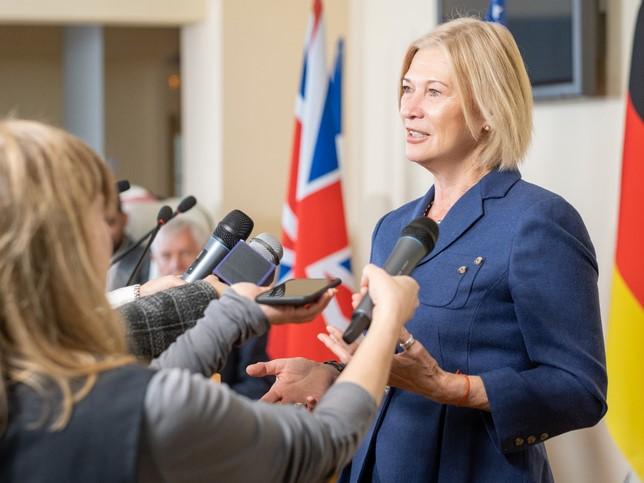
When refuge isn’t safe: uncovering real-life stories to shape policy

As pressure increases on universities to show real-world impact beyond their campuses, there is a growing appetite among academics for direct engagement with policymakers. But in an environment of political and economic turbulence, how can we secure real, lasting policy change? How can we get the attention of those with the power to make a difference?
The challenge is particularly pertinent in the arts and social sciences. We need to think like a minister with an overflowing email inbox and back-to-back diary entries. Yes, this research is interesting and original, even important, but why should it be dealt with today? How is this going to save money – or lives? How do your recommendations cut through?
Rather than building an expensive PR campaign or working through a black book of contacts, perhaps we need to delve into the most ancient and deeply human communication tool – storytelling. Maybe our facts and figures can only be really impactful if we share the faces behind them and allow policymakers to feel the need for change.
- THE Campus spotlight: what universities can do to assist refugees
- How to improve the public understanding of evidence
- Learning the craft of using your research to engage in policy
At the University of Birmingham, we have used forced migrants’ stories of sexual and gender-based violence to shape policy and practice to improve the lives of survivors. Responding to evidence shared by the university, charities and campaigners, the Commons Justice Committee recently released its pre-legislative scrutiny of the draft Victims Bill, which proposes an end to the sharing of victims’ data between the police and the Home Office for immigration enforcement and the introduction of a firewall to protect migrant victims.
Mariam’s story
“The men control everything, and the Home Office help men to do that,” explains Mariam, an asylum seeker and mother of three who has been waiting for approval to remain in the UK for more than two years.
She points to how the flawed asylum system is especially detrimental in cases of sexual and gender-based violence, where a woman’s dependency on their spouse cuts them out of the system, leaving them unaware of their rights and uninformed as to what constitutes abuse.
Mariam’s story is not unusual. As many as 50 per cent of forced migrant women and girls experience sexual and gender-based violence, with men and boys also affected, and many face further violence once in the UK, the University of Birmingham SEREDA project found. Systematic issues, such as retraumatising asylum interviews that despite intimate content and cultural sensitivities are often conducted by men, make disclosure of victimisation difficult, researchers discovered. Married, trafficked and enslaved migrants reported fears of disclosing abuse to the police because they knew they could be detained. Abusers reinforce this fear by threatening to report them to the police for immigration offences if they speak out.
As we see more refugees moving across Europe to escape conflict in Ukraine, there is increasing urgency to ensure that Ukrainian women and children are protected from sexual and gender-based violence as they try to find refuge.
The upcoming Victims Bill offers a real opportunity to introduce measures that protect, rather than criminalise, vulnerable refugee and forced migrant victims. Our team has worked closely with Jenny Phillimore, a leading scholar in migration and superdiversity who led the SEREDA project, to ensure that the bill provides all victims of sexual and gender-based violence with the right to protection and justice.
Bringing the real-life stories of the people who took part in the research into the policy debate has been crucial. Through the Unfiltered Lives campaign, the experiences of these women have been shared and formed the basis of conversations with MPs, peers, events and submissions to consultations and inquiries, helping to ensure that forced migrant victims are included in dialogue around the new bill.
Sharing these stories with integrity requires patience, collaboration and timing. Here are six steps to get started on spotlighting lived experience in policy engagement:
1. Tell the story
Invite those who have been involved in the research to share how their lives are impacted by the issue that brings a policy challenge. Think about the best way to share their stories – it could be a video, an article or even inviting them to speak at an event. Present these creatively, as the SEREDA team did, with graphics to show complex stories of forced migrant victims in accessible ways. Whatever channel you choose, be genuine. Give people an opportunity to share their stories in their own words.
2. Identify the change
Make your policy recommendations specific, actionable and urgent. Do your homework so you know how this change will make that person’s life better. Think about why this change is so important for policymakers. What is the benefit? Will it save or make money? What precise measure, policy, legislation or guideline needs to change? If your recommendation is “we need more research…” – it’s just not going to cut through.
3. Work together
Within your organisation, bring together academic and professional services colleagues to ensure that your messaging with external stakeholders is consistent and targeted. Bring in colleagues working in business engagement and those working with alumni so that the stories and policy recommendations are shared across wider networks.
4. Build partnerships
Look beyond your campus to work with partners who will support your recommendations for policy change. Think about the charities, thought leaders, influencers who are vocal in this space. And look beyond big national organisations to grassroots campaigners and service providers who have the ear of policymakers and who are able to complement your recommendations with their own experiences.
5. Find your champions
Identify policymakers who can champion your recommendations to more senior decision-makers. Who are the civil servants working in this policy area? How can the real-life stories you are telling fill in the gaps to influence their work? Look at the backbench MPs and peers who regularly speak on this topic to find those with a personal passion or constituency interest. Invite them for a meeting. Share your stories, and invite them to make your recommendations their own.
6. Keep it relevant
Adapt your messaging to reflect what is happening in the world right now. Think about how your recommendations fit into the policy challenges of this week – not just broad political trends. Since the Unfiltered Lives campaign launched in 2021, the war in Ukraine has brought experiences of forced migrant victims into sharp focus. While this has provided an opportunity to share the SEREDA research with policymakers looking for quick solutions, it has also meant adapting our recommendations to be relevant to initiatives such as the Homes for Ukraine scheme. As knowledge mobilisers, it is vital to evolve and change approaches to target messaging and ensure that stories such as Miriam’s are heard by the decision-makers holding the pen.
Lizzie Kirsch is the public affairs manager for the College of Social Sciences at the University of Birmingham and a member of the Universities Policy Engagement Network (UPEN).
If you found this interesting and want advice and insight from academics and university staff delivered direct to your inbox each week, sign up for the THE Campus newsletter.


